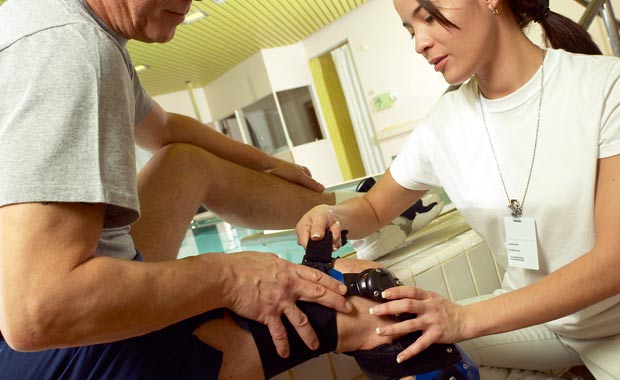How To Be An Active Participant In Your Orthopaedic Treatment
Prevention and Treatment When facing major surgery for your bones and joints, the information about your treatment and what you need to do can be overwhelming.

As daunting as that can be, education and preparation are key to achieving the best possible patient outcome from treatment and surgery. That’s because beyond the expertise of your orthopaedic surgeon and healthcare team, the patient has the most important role to play in regained mobility.
In fact, some surgeons estimate that a satisfactory result from surgery depends 20 percent on the skill of the surgeon and 80 percent on the effort the patient dedicates to recovery. “As surgeons, we see the better informed and prepared a person is for surgery and recovery, the better their results,” says Dr. C. Stewart Wright, orthopaedic surgeon with the Holland Orthopaedic & Arthritic Centre in Toronto. “Education, combined with peer support, aids patients to learn, remember, and to actively participate in their care, recovery and complements programs offered by clinics and hospitals.”
The customized educational programs provided by hospitals and surgical clinics play an integral role in the care path. These local and regional programs are made available with a goal to ensure Canadians understand how they can participate in their best possible results.
Education is key
“The greatest value in patient support resources and programs is that it levels the playing field for orthopaedic patients to learn about their surgery,” says Brenda Hadju, Executive Director of the Canadian Orthopaedic Foundation. “Regardless of where a patient is having their surgery performed — in a major city or small community — education and support is available anywhere via phone, internet, or in print.” Designed for caregivers and patients alike, these widely available programs help to ease the fear and anxiety experienced leading up to surgery, and build one’s overall confidence.

